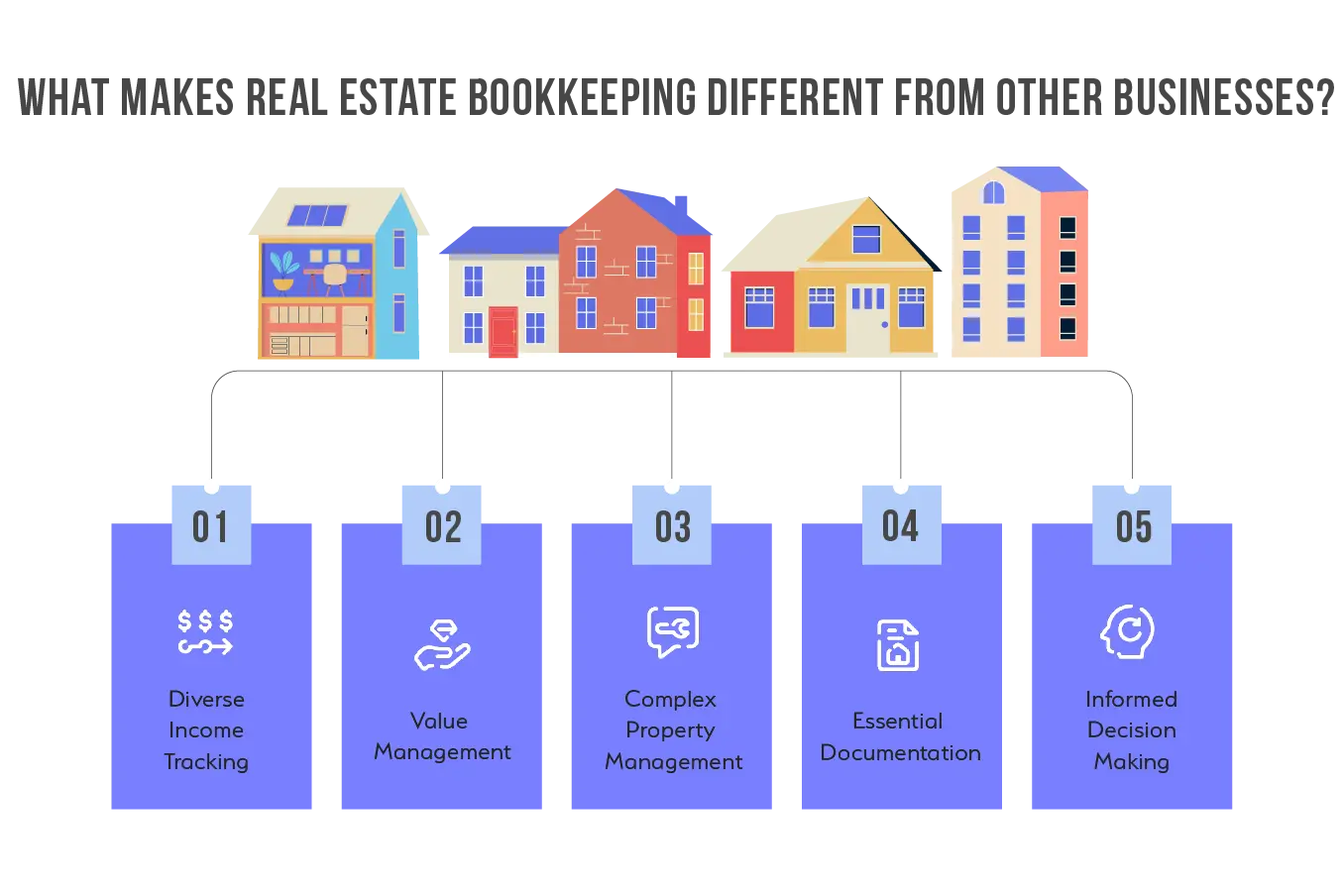Essential Tips for Thriving in Construction & Real Estate for Entrepreneurs
Navigating the Difficulties of Construction Accountancy in the Construction & Realty Sector
The building and genuine estate industries present unique monetary obstacles that call for a nuanced understanding of bookkeeping practices. The landscape continues to be filled with complexities that can hinder project success and financial health and wellness.

One-of-a-kind Financial Challenges
In the realm of construction bookkeeping, one-of-a-kind financial challenges often occur because of the market's inherent complexities. One prominent difficulty is the management of capital, which is typically unforeseeable as a result of the intermittent nature of construction projects. Delays in project completion can result in pay scarcities, influencing the capacity to pay subcontractors and vendors promptly.
In addition, the frequency of adjustment orders makes complex economic projecting. These modifications, which can develop from style adjustments or unanticipated website problems, may considerably influence budget plans and timelines (Real Estate Tax Services). Accurately tracking these adjustments while keeping transparency with stakeholders is important
Another difficulty is the requirement for precise work costing. Each task includes several costs, consisting of labor, materials, and above, which must be meticulously alloted to make certain productivity. Mismanagement in this location can lead to price overruns or losses.
Value of Accurate Budgeting
Accurate budgeting works as the foundation of successful construction jobs, directly influencing a company's financial wellness and job feasibility. In the building and actual estate industries, specific budget plan formula is vital, as it dictates the allotment of sources, labor, and materials (Construction CPA Accounting Firm). A well-structured budget allows task managers to anticipate expenses precisely and established reasonable timelines, making certain that jobs remain on the right track and within economic constraints
Moreover, precise budgeting cultivates accountability and transparency amongst stakeholders. By offering a clear economic roadmap, it helps to minimize threats connected with price overruns and unforeseen expenditures. Construction companies that prioritize budgeting can better discuss agreements, take care of subcontractor settlements, and avoid disputes over monetary inconsistencies.
Furthermore, a trustworthy budget assists in reliable decision-making, enabling business to pivot and adjust to unforeseen challenges, such as fluctuating material prices or regulatory changes. Ultimately, the significance of accurate budgeting can not be overemphasized; it not just sustains the effective implementation of private tasks however also adds to the lasting sustainability and development of construction companies in an open market.
Cash Circulation Management Approaches
Efficient capital management is vital for preserving the financial security of construction tasks, particularly following the facility of a strong budget. Building and construction firms must carry out strategies that ensure the timely inflow and discharge of money, hence preventing liquidity concerns that can impede project progression.
One efficient approach is to establish a systematic invoicing process that straightens with project turning points. Construction CPA Accounting Firm. By issuing invoices promptly upon completion of essential phases, firms can increase money inflows. In addition, supplying early payment discounts can incentivize clients to resolve bills faster, boosting cash money flow
An additional essential technique is to very closely keep track of accounts payable and receivable. On a regular basis assessing impressive billings allows firms to determine and resolve potential delays in payments, while calculated monitoring of payables can aid expand cash schedule without jeopardizing relationships with providers.
Moreover, keeping a money book is crucial. This barrier can cover their website unanticipated expenditures or delays in settlement, guaranteeing project continuity. Making use of money circulation projecting tools can give insights into future money demands, allowing firms to make enlightened economic choices and minimize threats connected with cash scarcities. With these strategies, building companies can browse capital difficulties successfully.
Conformity and Regulative Concerns
Various compliance and governing issues can considerably influence the construction market, demanding careful navigating to avoid expensive charges and job hold-ups. Building companies have to stick to a myriad of guidelines at neighborhood, state, and federal levels, consisting of building regulations, labor legislations, and ecological policies. Failing to abide can result in fines, task closures, or legal conflicts.
Licensing and authorization needs are important elements of conformity. Service providers have to make sure that all essential licenses are gotten which personnel hold the suitable licenses. Non-compliance in this area can lead to substantial delays and raised costs.
In addition, adherence to safety and security regulations, such as those detailed by the Occupational Safety And Security and Health And Wellness Administration (OSHA), is paramount. A lack of compliance can not just jeopardize employee safety but likewise subject companies to liability and reputational damage.
Environmental policies also play a critical role, especially concerning waste disposal and site remediation. Firms should have methods in position to keep an eye on and handle their ecological influence properly.

Best Practices for Building Audit
Browsing the complexities of conformity and regulatory issues in the building market highlights the value of sound financial management practices. To accomplish efficient construction accounting, business need to carry out a number of ideal methods that enhance openness, precision, and efficiency.
First of all, embracing a robust job setting you back system is critical. This enables for precise tracking of costs connected to each job, facilitating much better budget monitoring and earnings evaluation. Second of all, timely and exact payment is important. Executing development billing can assist maintain cash money flow and lower the danger of conflicts with clients.
Furthermore, regular settlement of accounts is important to make certain that economic read review documents line up with bank declarations and job prices. Making use of specific building and construction bookkeeping software can improve these processes, enhancing information precision and access.

Moreover, maintaining meticulous documents of contracts, change orders, and communication will help in conformity and work as a reference during audits. Investing in continuous training for accounting staff on industry-specific guidelines and accountancy criteria will certainly enhance total economic monitoring capacities.
Verdict
In final thought, browsing the complexities of construction audit demands an extensive understanding of unique financial difficulties, highlighting the value of exact budgeting and effective capital monitoring. Adherence to compliance and regulative demands is important to mitigate dangers connected with project changes. Applying best methods in building and construction accounting enhances monetary openness and operational integrity, inevitably supporting the sustainability and feasibility see post of projects within the building and genuine estate industry.
